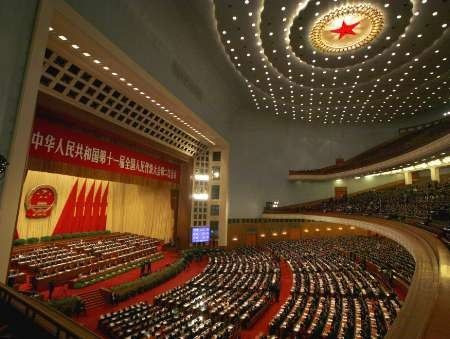For The Chinese, It's The Economy, Stupid (And The Reform)

A celebrated, if unofficial, motto of Bill Clinton's first presidential campaign was, "It's the economy, stupid." With the Communist Party Congress meeting on Thursday just a day away, the Chinese population seems to be concerned about the same thing, as the country prepares for a once-in-a-decade transition to a new president and prime minister appointed by the ruling party. With, probably, a very local addition: it's the reform, too.
A survey featured in China's Global TImes found that about 80 percent of the Chinese want political reform, and that the 18th National Congress of the Communist Party of China (CPC) is important in determining China's future challenges. The survey of more than 1,200 people in seven major cities including China's political capital, Beijing, and the business capital Shanghai, found that most people were mostly concerned with "economic development and people's livelihoods," according to the report.
The 18th CPC National Congress is the platform where both history and future plans for the nation will be discussed. China's top leaders come together to discuss the development over the last ten years under the leadership of outgoing president Hu Jintao, and more importantly formally appoint China's newest top leader, likely to be Xi Jinping, setting the stage for China's future.
That future, according to more than 70 percent of those surveyed, should include changes in the freedom of user-driven media--including most forms of social media like the Chinese version of Twitter, Sina Weibo-- which will in turn support government transparency, and efforts against corruption, another issue that topped many people's list of concerns.
When asked about China's biggest challenges in the next five years, those surveyed reported general corruption is the biggest concern, among almost 40 percent of people. Corruption is the likely root of the other two problems that were also mentioned: wealth imbalances and defective social security systems.
This year's Congress takes place at a time where the global economy is suffering, affecting China's as well; even though the growth rate there remains far higher than in Western nations, its GDP grew 7.4 percent in the third quarter of this year, the slowest rate in more than three years. Issues of social justice and the direction of China's economy and politics are being thrust to the forefront of national and international conversations because of the effect they will have on not only the Chinese, but also the rest of the world.
China has reached a point where its continued reliance on economic growth for legitimacy as a global power may not be enough; the government may soon have to start promoting a social model that offers its citizens meaning and direction beyond benefits on just the material level.
Though the survey still shows 40 percent of people having a positive outlook on China's future, it has become harder for the other 60 percent to see past what they see as problems tied with a government burdened with deep political, economic, and structural complexities that need to be addressed.
© Copyright IBTimes 2024. All rights reserved.





















